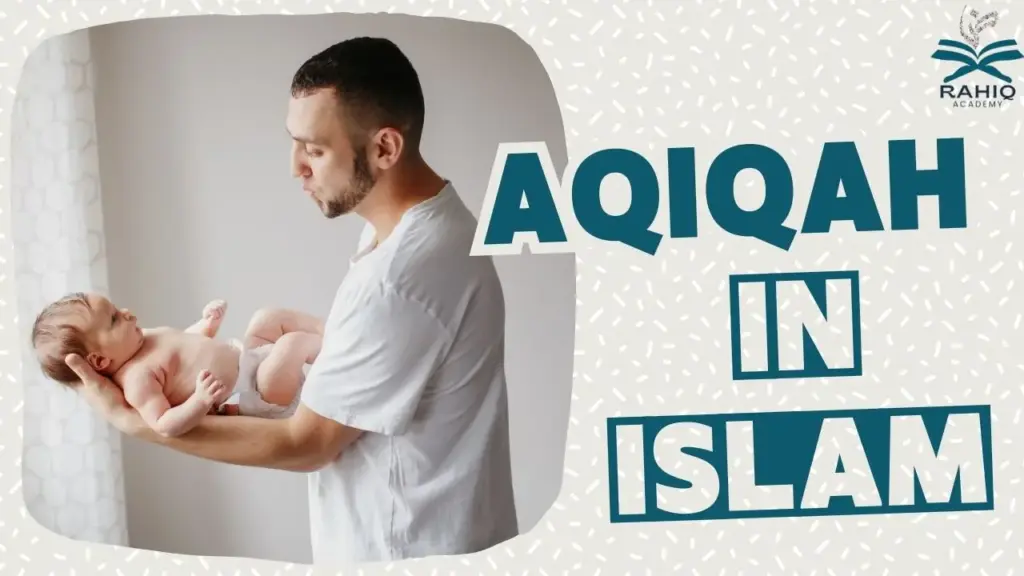Have you ever wondered what is Aqiqah in Islam? It is more than a sacrifice, it is an act of worship expressing gratitude to Allah, bringing blessings to the child, and joy to the family. In this article, we explore its ruling, importance, and how it is performed.
What is Aqiqah?
To understand what is Aqiqah in Islam, it is the slaughtering of an animal (from livestock) for the newborn on the seventh day after birth or later, as a way of thanking Allah for the blessing of a child.
It is a confirmed Sunnah from the Prophet Muhammad (peace be upon him). Two sheep are slaughtered for a boy and one sheep for a girl. It is considered a sign of happiness and a way of getting closer to Allah.
The meat can be distributed to the poor, family, and friends, or cooked as a feast to which relatives and neighbors are invited. Some of it can also be shared, and some eaten with loved ones.
After answering the question, “What is Aqiqah?”, let us now look at its ruling and how it is performed.
What is the Ruling of Aqiqah?
It is a confirmed Sunnah, as the Prophet Muhammad (peace be upon him) said:
“مَنْ وُلِدَ لَهُ وَلَدٌ فَأَحَبَّ أَنْ يَنْسُكَ عَنْ وَلَدِهِ فَلْيَفْعَلْ”
He said, “If anyone has a child born to him, and wants to sacrifice for his child, then let him do it.”
Importance of Aqiqah in Islam
After knowing what is Aqiqah in Islam, we move to understand its importance. Aqiqah has a great value and many benefits for the newborn and the community. These include:
Importance of Aqiqah in Islam from a religious and spiritual perspective:
- Gratitude to Allah: Aqiqah is a way for parents to thank Allah for the blessing of a child and the health of both the mother and the baby.
- Protection from harm: It is narrated that Aqiqah protects the child from evil and misfortune, as the Prophet (peace be upon him) said, “Every child is held in pledge by his Aqiqah.”
- Intercession of the child: If the child dies before reaching maturity, Aqiqah will be a reason for the child to intercede for his parents on the Day of Judgment.
- Reviving the Sunnah: By practicing Aqiqah, Muslims follow the example of the Prophet ﷺ and keep his Sunnah alive.
Importance of Aqiqah in Islam from a social perspective:
- Strengthening social ties: Aqiqah brings relatives, friends, and neighbors together, increasing love and cooperation in society.
- Celebrating the newborn: It is a blessed way of expressing happiness for the arrival of a new baby with family and friends.
- Helping the poor: Distributing Aqiqah meat supports the needy and shares joy with them.
- Announcing lineage: By cooking and sharing food, Aqiqah shows the presence of the new baby and the family’s care for him or her.
When is Aqiqah Performed?
Many people ask, When is Aqiqah Performed? The best time is on the seventh day after the baby’s birth. However, if it is done later, there is no problem.
Aisha (may Allah be pleased with her) said: if it is missed, then it can be done on the fourteenth day, and if missed again, then on the twenty-first day, and after that, there is no specific time.
وَعَنْ سَمُرَةَ - رضى الله عنه - أَنَّ رَسُولَ اَللَّهِ - صلى الله عليه وسلم -قَالَ: { “كُلُّ غُلَامٍ مُرْتَهَنٌ بِعَقِيقَتِهِ, تُذْبَحُ عَنْهُ يَوْمَ سَابِعِهِ, وَيُحْلَقُ, وَيُسَمَّى” }
Samurah (RAA) narrated that Allah’s Messenger (ﷺ) said:
“Every boy is pawned against his ‘Aqiqah, to be slaughtered on his behalf on the seventh day of his birth, his head is to be shaved, and he must be given a name.”
(Bulugh al-Maram)
Rules and Conditions for Aqiqah Animals
There are Rules and Conditions for Aqiqah Animals, and they are the same as those of Udhiyah (sacrifice):
- The animal must be from livestock (camels, cows, sheep, or goats).
- It must reach the required age:
- Sheep: six months or older.
- Goats: one year or older.
- Cows: two years or older.
- Camels: five years or older.
- The animal must be free from defects. It cannot be blind, lame, or sick.
How to Perform Aqiqah?
Many people ask, How to Perform Aqiqah? It can be done in simple steps:
- Intention: The person makes the intention of Aqiqah.
- Sacrifice: Two sheep are slaughtered for a boy, and one sheep for a girl.
- Timing: The best time is the seventh day, then the fourteenth, or the twenty-first. If delayed, If it is delayed beyond that, there is no problem.
- Animal conditions: The animal must fulfill the rules mentioned earlier and be free from defects.
- During slaughter: The one who slaughters says, “Bismillah, Aqiqah of (child’s name).”
- Distribution: The meat can be given to the poor, family, and friends, or cooked and served in a feast with relatives and neighbors.
FAQ
Q: Is the Aqiqah a Sunnah or obligatory?
A: It is a confirmed Sunnah.
Q: What if Aqiqah is not done?
A: If a person is capable but neglects it, they lose a great reward and blessing for their child. If they cannot afford it, then there is nothing upon them.
Q: Can Aqiqah be done in another country?
A: Yes, it is allowed. But the best is to do it at home and eat from it, because this was the practice of the Sunnah.
Conclusion
In conclusion, we have learned what is Aqiqah in Islam regarding its meaning, ruling, importance, timing, and conditions. Aqiqah is a blessed Sunnah that combines gratitude to Allah, protection for the child, and strengthening family and social bonds. It remains a symbol of happiness and blessing in a Muslim’s life.
We all know that faith-based upbringing begins from the very first day of a child’s life. Just as we revive the Sunnah of Aqiqah, we also need to plant the love of the Qur’an and Sunnah in our children’s hearts from an early age. This is where Rahiq Academy comes in, offering excellent online courses to learn the Qur’an, Hadith, and Islamic teachings in an easy and practical way for both adults and children.
Register today at Rahiq Academy and be the reason for planting the light of the Qur’an in your heart and your children’s hearts.




